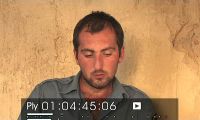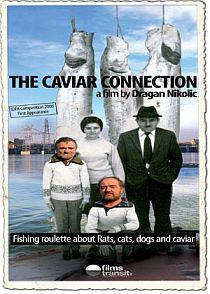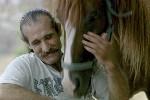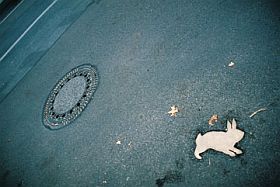


Guyla Nemes: Lost World
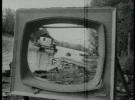
“The life, demolition and reconstruction of the Kopaszi dam between 1998 and 2007. A mostly black & white 35mm documentary shot over ten years in a forgotten landscape in the center of Budapest. People living in houseboats and wooden houses, struggling against flood, snow and investors who want them to evict. The second part of The Dike of Transience.”
In this way the East Silver annotates the film of a young Hungarian director, who in a wonderful old fashioned way masterly plays with the picture and sound for the duration of 20 minutes. This is organic material, it is film, you can see it, it has scratches and broken sound, and intuitive editing and it witnesses the director’s imaginative skills that he lets the sound of an rehearsing orchestra accompany the images from a Christiania (yes, I am Danish) like free town, a free spirit community that is being harmonized in the name of the EU. It is seasons, its cats running around, it is glimpses of Life, it is grass being rolled out in straight lines, it is a new posh community entering what was a treasure. What a playful and thoughtful and sensitive documentary!
20mins, 2008 financed by local sources and Finnish YLE.

